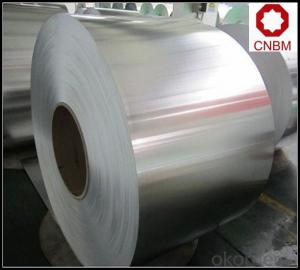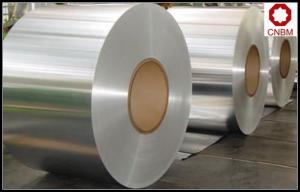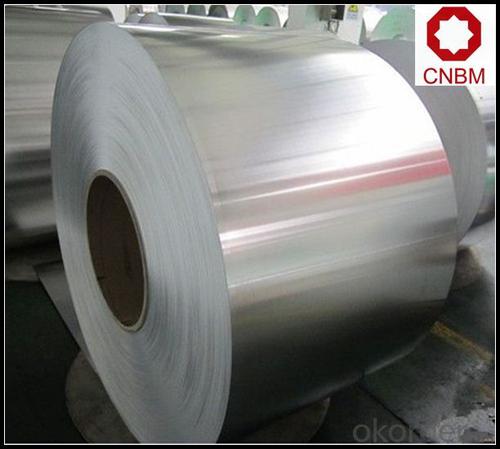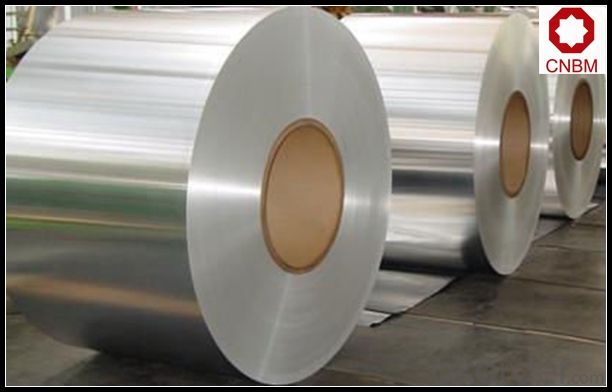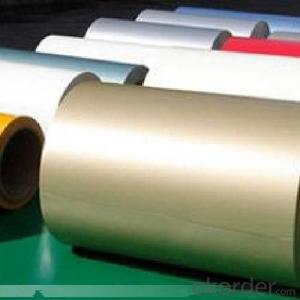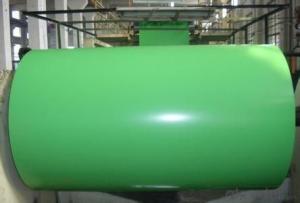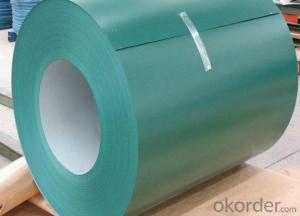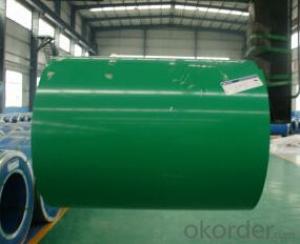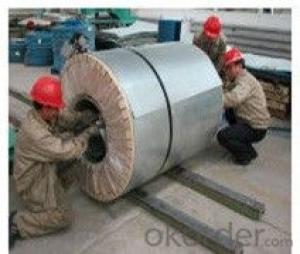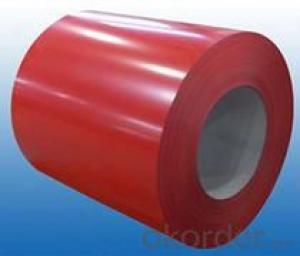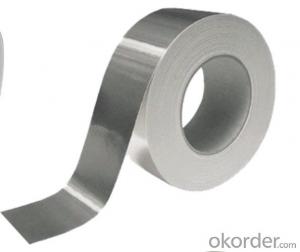Hot Rolled Prepainted Aluminum Coil 3 Series
- Loading Port:
- Shanghai
- Payment Terms:
- TT OR LC
- Min Order Qty:
- 5 m.t.
- Supply Capability:
- 10000 m.t./month
OKorder Service Pledge
OKorder Financial Service
You Might Also Like
Specification
1. Specification of Hot Rolled Prepainted Aluminum Coil 3 Series
1) Alloy | 1050, 1060,1100, 3003 3004 3105 3A21 5005 5052 etc |
2) Temper | O/H12/H14/H1/H18/H32/H34/H36/H38//H111/H112/H116/H321/T6/T651/T3/T351 etc |
3) Thickness | 0.1mm to 6mm |
4) Width | 20mm to 3300mm |
5) Coil weight | 100kgs to 6 tons depends on actual requirement |
6) Core material | Aluminum or paper |
7) Coil Inner diameter | 75mm, 150mm, 200mm, 300mm, 405mm, 505mm or as required |
8) Protective film can be added
2. Application of Hot Rolled Prepainted Aluminum Coil 3 Series
(1).Interior: wall cladding, ceilings, bathrooms, kitchens and balconies, shutters, doors...
(2).Exterior: wall cladding, facades, roofing, canopies, tunnels,column covers , renovations...
(3).Advertisement: display platforms, signboards, fascia, shop fronts...
3. Feature of Hot Rolled Prepainted Aluminum Coil 3 Series
*Such coil is specially designed to replace aluminum ingot, due to the high export tax of aluminum ingot, the coil has better price than ingot.
*This type of coil can fit customer's remelting furnace just like ingot, no need to make any change to the production line that was previously used for ingot. The standard coil size and weight is very suitable for the feed gate of furnace.
*This type of coil causes less material wastage than ingot when remelted.
*Our coil is made directly from ore, no need to go though the ingot making process, quality is much better than other suppliers who use ingot scrap to make coil.
Be free from Oil Stain, Dent, Inclusion, Scratches, Stain, Oxide Dicoloration, Breaks, Corrosion, Roll Marks, Dirt Streaks and other defect which will interfere with use
4. Certificate:
SGS and ROHS(if client request, paid by client), MTC(plant provided), Certificate of Origin(FORM A, FORM E, CO), Bureau Veritas and SGS (if client request, paid by client), CIQS certificate
5. Image of Hot Rolled Prepainted Aluminum Coil 3 Series
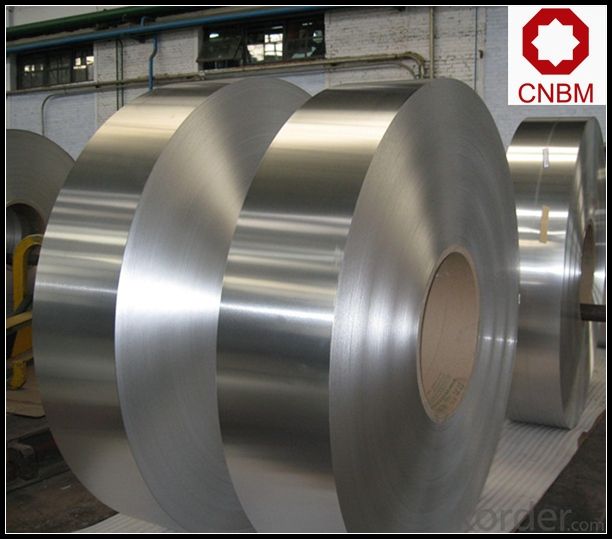
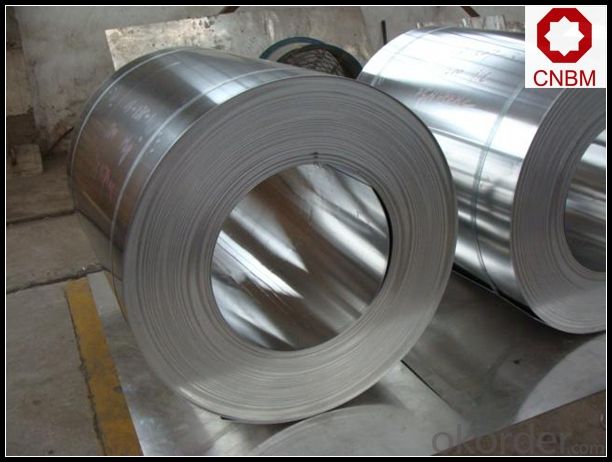
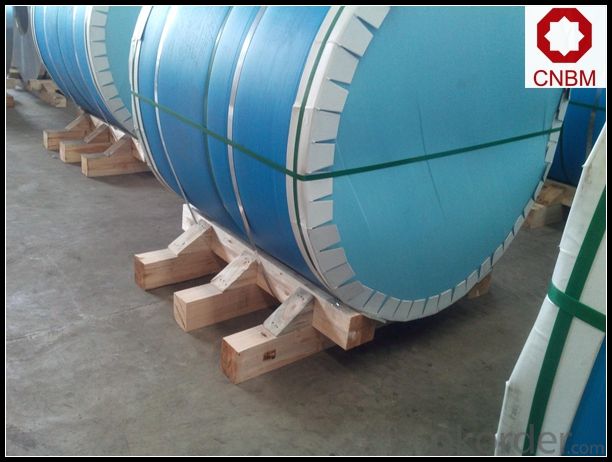
6. Package and shipping of Hot Rolled Prepainted Aluminum Coil 3 Series
eye to wall
eye to the wall
with wood pallet (wooded case also available)
7. FAQ
1) What is the delivery time?
Dpends on actual order, around 20 to 35 days
2)What is the QC system:
We have QC staff of 20 persons and advanced equipment, each production is with MTC traced from Aluminum ingot lot.
3) What market do you mainly sell to?
Australia, America, Asia, Middle East, Western Europe, Africa etc
- Q: Aluminum extrusions are bars made with hollow cavities that allow each to be joined easily, using special connectors. The primary difficulty when painting aluminum extrusions centers on the fact that they are nonporous and durable. Each of these traits creates a complication of its own.
- Your question supposes that you need to Paint the Aluminum Extrusion. The more common thing to do is to Anodize the extrusion. This process coats all surfaces with a hard durable coating. There are several colors available. Actually It's common to use Urethane's to paint Aluminum and the primer isn't simply made for metal, but is specifically for Aluminum. A lot of Airplanes are coated every day in this manner. Methods for coating the insides of tubing have been used for a very long time. You basically fill the tube with primer or coating then drain the excess out (dip method) and difficult shapes can be powder coated or electro static coated. Extrusions can be roller coated after cleaning, vinyls work very well with out priming. Think Toothpaste tubes.
- Q: Are aluminum coils prone to corrosion?
- Yes, aluminum coils are prone to corrosion. Aluminum is a reactive metal that easily forms a protective oxide layer when exposed to oxygen. However, this oxide layer can be compromised by certain environmental factors, such as exposure to moisture, salt, or other corrosive substances. Over time, this can lead to the formation of corrosion on the surface of aluminum coils. Regular maintenance and proper care, such as cleaning and applying protective coatings, can help mitigate the risk of corrosion.
- Q: Explain how aluminum coils impact transportation, including considerations for logistics and safety.
- <p>Aluminum coils significantly affect transportation due to their weight and size. They are heavy and bulky, which requires specialized vehicles for transportation to ensure stability and prevent damage. The weight of aluminum coils can impact fuel efficiency and may require more powerful vehicles, increasing fuel consumption and emissions. Additionally, the transportation of aluminum coils must adhere to strict safety regulations to prevent accidents, especially when transported over long distances or on public roads. This can involve securing the load properly, using appropriate transport methods, and ensuring drivers are trained to handle heavy loads. The logistics of transporting aluminum coils can be complex, requiring careful planning and coordination to minimize delays and costs.</p>
- Q: What is the typical electrical resistivity of aluminum coils?
- Aluminum coils have an average electrical resistivity of around 2.65 x 10^-8 ohm-meters, showcasing their exceptional conductivity. This attribute renders them a top-notch option for electrical conductors. The remarkable conductivity enables an efficient flow of electric current within the coils, thereby reducing energy dissipation and heat production. Consequently, aluminum coils find extensive utilization in diverse electrical sectors, including transformers, motors, and generators.
- Q: This question asks about the environmental impact of aluminum coils, including potential effects on the ecosystem and human health.
- <p>Aluminum coils, when produced and used responsibly, have minimal environmental impact. However, improper disposal or manufacturing can lead to pollution. Aluminum production requires significant energy, contributing to greenhouse gas emissions. During manufacturing, if not managed properly, can release harmful substances into the air and water. Yet, aluminum is highly recyclable, reducing its environmental footprint over time. When disposed of improperly, aluminum can contribute to litter and leach harmful substances into the soil and water, affecting wildlife and potentially human health. Responsible recycling and manufacturing practices are crucial to mitigate these effects.</p>
- Q: What is the impact resistance of aluminum coils?
- The specific impact resistance of aluminum coils may vary depending on the alloy and temper of the aluminum. In general, aluminum is renowned for its excellent impact resistance due to its inherent strength and ductility. Aluminum coils find extensive use in industries like automotive, construction, and packaging, where they are likely to encounter impact or mechanical stress. Manufacturers frequently employ aluminum alloys like 3003, 5052, or 6061 for coil production. These alloys are recognized for their high tensile strength, which contributes to their impact resistance. Furthermore, aluminum possesses the capability to absorb and distribute energy upon impact, thereby reducing the likelihood of damage or deformation. It is important to note, however, that various other factors can influence the impact resistance of aluminum coils. These factors include coil thickness, surface finish, and the presence of additional protective coatings or treatments. Generally, thicker coils offer greater impact resistance, while coatings or treatments can enhance durability and resistance to impact. In conclusion, the impact resistance of aluminum coils can generally be considered satisfactory. However, it is advisable to consult with a manufacturer or supplier to ascertain the specific impact resistance properties of the chosen aluminum alloy and coil.
- Q: What is the typical thermal expansion coefficient for aluminum coils?
- The aluminum coils usually have a thermal expansion coefficient of approximately 23.1 x 10^-6 per degree Celsius (or 23.1 x 10^-6/°C). This coefficient signifies the alteration in length of an aluminum coil with each degree Celsius rise in temperature. It is worth mentioning that this figure might slightly differ based on the particular alloy and composition of the aluminum coil.
- Q: Is it possible to create a flowerpot using an aluminum coil?
- <p>Yes, you can use an aluminum coil to make a flowerpot. Aluminum is lightweight, durable, and can be easily shaped, making it a suitable material for crafting flowerpots. To create a flowerpot, you would need to cut the coil to the desired size, shape it into a pot form, and possibly add drainage holes. Ensure the aluminum is cleaned and treated to prevent any potential harm to the plants due to chemical reactions with the soil.</p>
- Q: I have a electrical project to do, and could save about $300.00 by using aluminum wire since I can get it free, but I have never used aluminum before, and am not sure if it is a good way to go.
- Aluminum wire can be connected to copper wire with the proper connector
- Q: This question asks about the environmental effects associated with the use of aluminum coils.
- <p>The environmental impacts of using aluminum coils include energy consumption during production, potential release of greenhouse gases, and waste generation. Aluminum production requires significant energy, contributing to carbon emissions. Additionally, the extraction of bauxite, the primary source of aluminum, can lead to habitat destruction and water pollution. However, aluminum is highly recyclable, and recycling it saves energy and reduces waste. Proper disposal and recycling practices can mitigate some of these impacts, making aluminum a more sustainable choice when managed correctly.</p>
Send your message to us
Hot Rolled Prepainted Aluminum Coil 3 Series
- Loading Port:
- Shanghai
- Payment Terms:
- TT OR LC
- Min Order Qty:
- 5 m.t.
- Supply Capability:
- 10000 m.t./month
OKorder Service Pledge
OKorder Financial Service
Similar products
Hot products
Hot Searches
Related keywords
